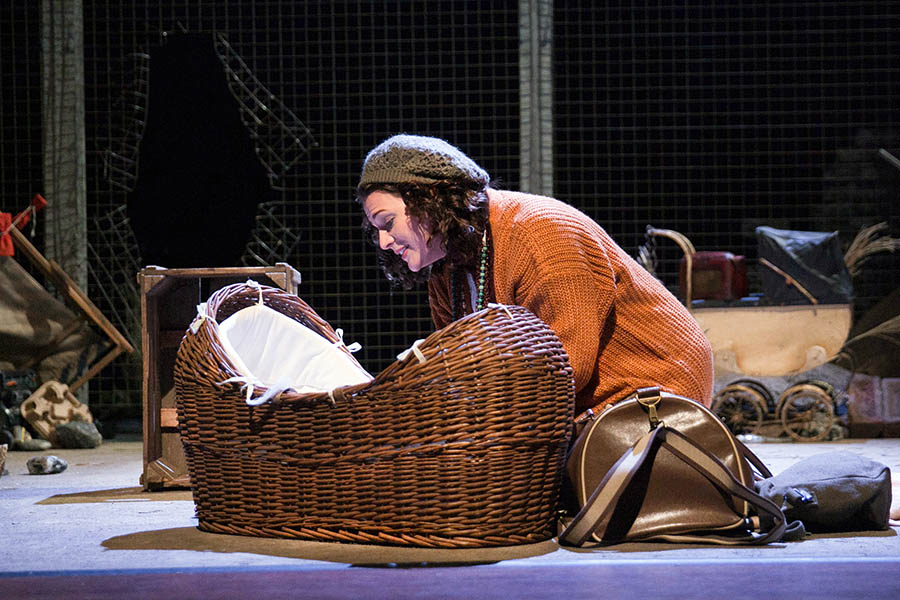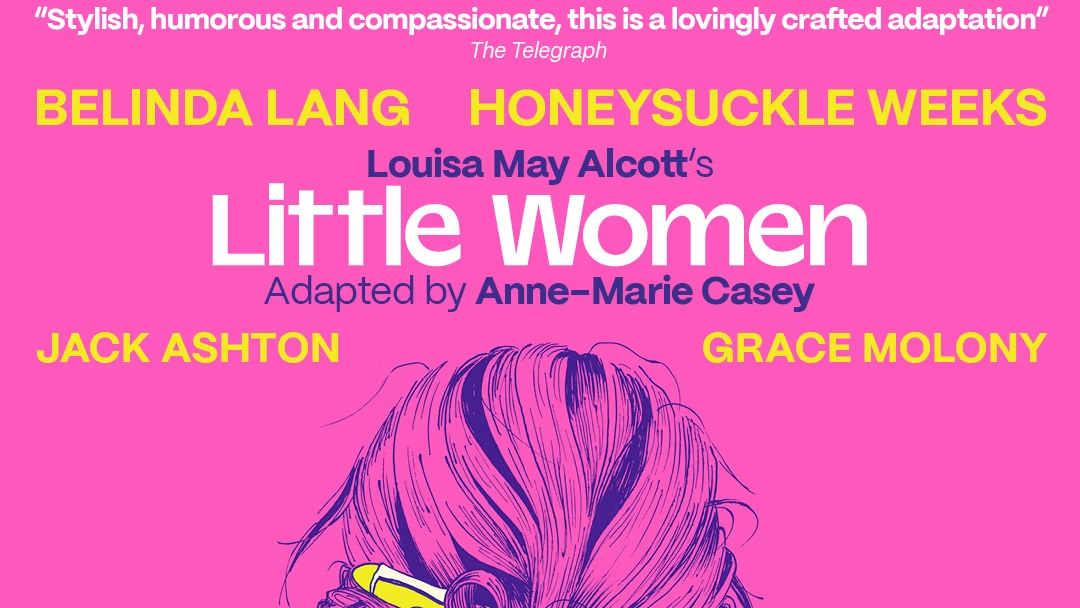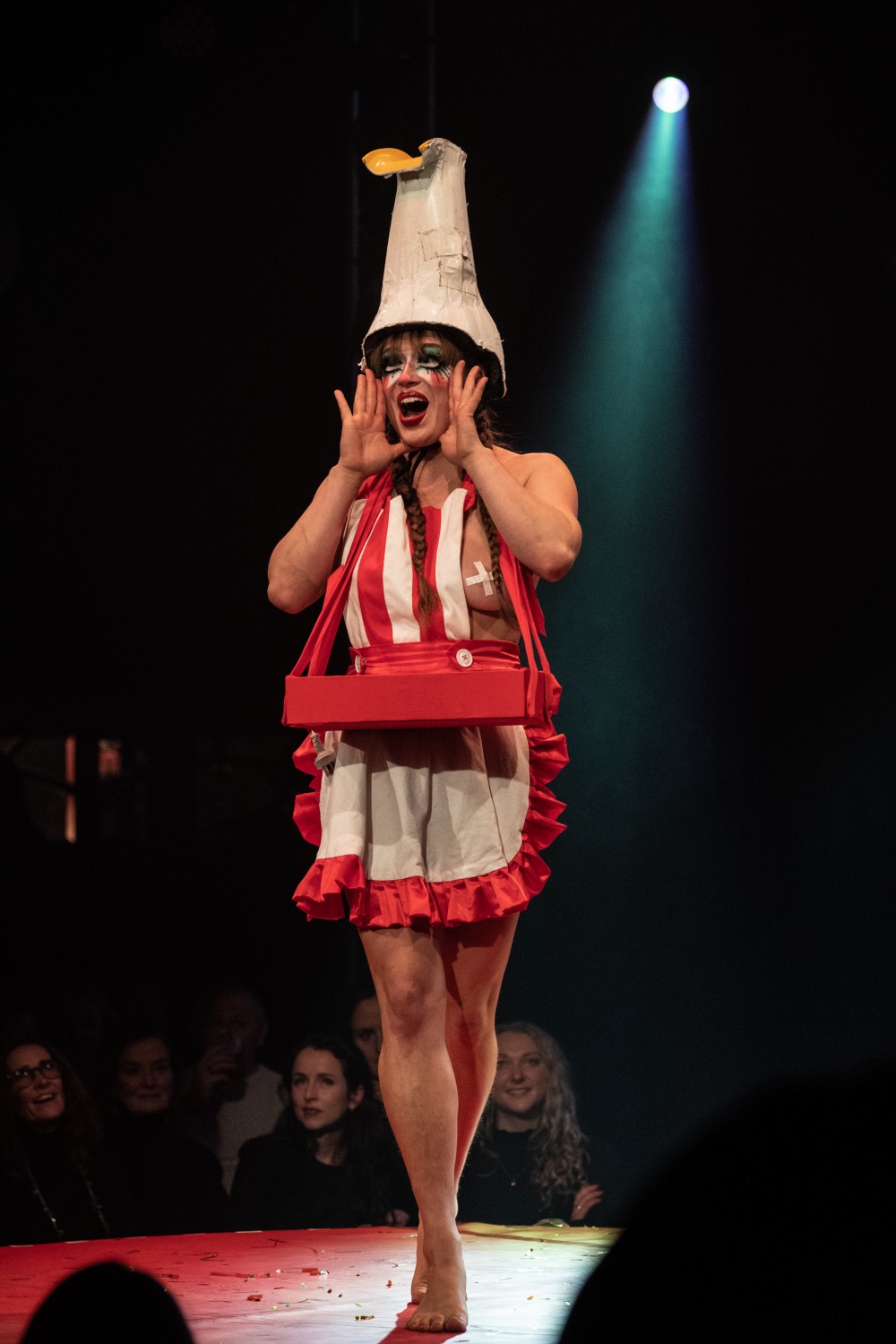Written in 1985, Charlotte Keatley’s award-winning play My mother said I never should is set in Manchester, Oldham and London. The play spans across four generations of women, as they live through the massive social changes of the 20th century.
It tells the women’s story as they confront the most significant moments of their lives. with themes such as love, jealousy and the price of freedom. It examines the relationships between mothers and daughters past and present.
Actress Felicity Houlbrooke recently gave a fantastic performance as Rosie Metcalfe, the youngest of the four women, in Theatre Royal in Windsor.
Interviewing Felicity about her experience of playing the role I asked her what she liked about playing Rosie;
“Her complete lack of a filter!” explained Felicity. “She says exactly what she thinks and feels, something the other characters often deny themselves”.
“I’m also drawn to the sense of possibility fizzing within her” she continued. “She has enormous passion, heart and is very bright. She takes great interest in the world around her and fully immerses herself in experiencing it.”
It is primarily about the “mother/daughter relationship” and the “delicate balance of love and hurt that exists within it” Felicity believes and it “repeats across the generations in the play.”
I asked Felicity what were the most challenging aspects of playing her character?
“I think trying to retain the ‘truth’ of Rosie as a child” she explains, “I really didn’t want to fall into playing a caricature. Hopefully, I’ve managed to keep her authentic”.
I asked Felicity what she thought has stayed the same or changed across generations from when the play was written in 1985.
“[The play] examines how these relationships influence the choices the women make and the debt that each generation owes to the previous ones” she astutely observes.
So in other words, we are freer today because of the sacrifice and protest of women that have fought for those freedoms in the past.
The difference however she continues. “They all share aspirations of wanting to find love and independence and yet we witness the clash of attitudes of the four generations, shaped by the changes in the societal landscape through their lifetimes.”
I asked Felicity what was her favourite among the other characters? While she feels all of the characters are incredibly complex, the character of Doris, the oldest of them, resonates most with her;
“I think each of the characters is incredibly complex and all of them grapples with huge challenges and emotions in the play.” she explains,
“I think Doris is wonderful. She witnesses such enormous changes across her lifetime and shows huge resilience because of this. She’s pretty feisty but also incredibly warm and humorous.”
Who should come to see this play? Who will this resonate with?
“I think the play can resonate with a huge number of people. Themes of love, family and the delicate and shifting relationships that lie within them, transcend generations and form part of the human experience” she says.

“It’s about life. It’s funny, entertaining, gut-wrenching and hopefully appeals to a wide range of people, not just women”.
It is refreshing to see an all-female cast in 2018, in the year of the woman.
Felicity explains, “The play examines what it is to be a woman and the perpetual contention of motherhood vs career. The choices the women have available to them are continually evolving as society changes, as is the notion of ‘family’”.
“No one-generation has the same experience as the other; the play captures this beautifully,” Felicity says.
In the year of the woman, women face a massive challenge to be heard, to keep up the good fight for women’s rights globally.
This play gives a narrative of the female experience across generations. It “showcases the tenacity of the women, adapting to these societal changes and challenges, but also highlights how their options and choices have expanded with time” explains Felicity.
“Despite being written in the 1980s, taking a stark look at it today also serves to highlight what has not changed and how much still has the potential to change for future generations” she concludes.
Unfortunately in 2018 the battle continues.









![Antigone [on strike] | Review Ali Hadji-Heshmati and Hiba Medina in Antigone [on strike] at Park Theatre, London. Photo: Nir Segal](https://theartiscapegallery.com/wp-content/uploads/2025/02/Antigone-on-strike-photo-by-Nir-Segal-D1_Standard-180x135.jpg)




















